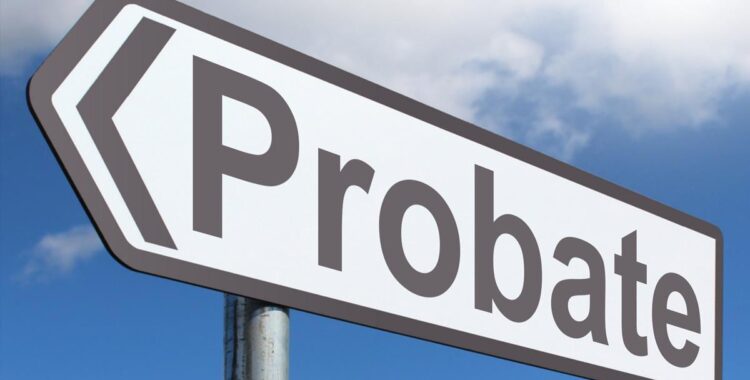When is Probate Necessary in Alberta?
The question I’m asked most frequently by both my Estate Planning (Wills) and Estate Administration (Probate) clients is “when is probate necessary?” Whether you’re creating an Estate plan, or have been tasked with acting as the Executor of a deceased’s Estate, it’s a question that’s worth asking.
A prudent Wills & Estates lawyer will address the topic of probate at both the Estate Planning stage and the Estate Administration stage.
While it’s always important to obtain legal advice from a qualified Wills & Estates lawyer when determining whether probate is necessary, this article provides a brief and helpful summary of the situations that most typically require a probate application in Alberta.
What is Probate, Anyways?
In my experience, most people dread hearing the word “probate”. There are numerous misconceptions about probate, many of which are well-intentioned, but not necessarily correct. That’s why it’s helpful to have a baseline understanding of what probate is, and if you find yourself in a situation where probate may be necessary, you should always contact a qualified Alberta Wills & Estates lawyer to determine what your obligations are.
People often use the term “probate” as a catch-all to describe the Estate Administration process. Estate Administration is the process of gathering and distributing the assets of a deceased’s Estate. In many cases in which someone dies leaving a Will, the Executor is required to obtain a Grant of Probate from the Surrogate Court. In limited circumstances, however, an Executor can administer and distribute the Estate without obtaining a Grant of Probate, provided that the deceased left a valid Will.
When someone dies without leaving a Will, the Executor almost always needs to obtain what’s called a Grant of Administration from the Alberta courts.
A Grant of Probate is a court document, issued by the Surrogate Division of the Court of Queen’s Bench of Alberta, which confirms or validates the Executor’s authority to distribute the deceased’s Estate. It also confirms the validity and legitimacy of the deceased’s Last Will.
Grants of Administration and Grants of Probate are quite similar, and much of the documentation for each application overlaps. This article, however, focuses on whether Probate is necessary when someone dies leaving a valid Will.
Start by Gathering Information
If you’re the spouse or next-of-kin who lived with the deceased individual, it’s important to search their belongings for a Will. If you find more than one Will, typically the most recently dated, valid Will determines who is entitled to act as the Estate’s Executor.
Once you’ve conducted a thorough search for the deceased’s Will, you should meet with a Wills & Estates lawyer, regardless of whether you were able to actually locate the Will. A qualified Wills & Estates lawyer will help you determine whether the Will is valid, and who is entitled to act as Executor, regardless of whether a Will was found.
If your Wills & Estates lawyer confirms that the Will you’ve found is valid and that you’re the Estate’s appointed Executor, you’ll need to do some further information gathering to determine the nature and extent of the deceased’s liabilities and assets. Documentation to look for includes bank statements, land title certificates, investment account summaries, credit card statements, vehicle ownership documentation, identification documents, and statements for any other assets or debts the deceased may have had.
Once the Will is located, the Executor has been determined, and there is a full picture of the deceased’s debts and assets, you should seek the advice of a probate lawyer to determine whether an application for a Grant of Probate is necessary in the circumstances.
When is Probate Necessary in Alberta?
Various circumstances necessitate a probate application, even if the deceased left a valid Will:
- If the deceased failed to leave a Will, an application for a Grant of Administration, which is similar to a Grant of Probate, is almost always necessary;
- If the deceased owned land or a home, and no “Joint Tenant Owner” is named on the certificate of land title, a Grant of Probate is required in order to transfer the home or the land to the Estate. For example, if the deceased owned a house, in his or her sole name, the Land Titles Office will not permit the transfer or sale of said property unless a Grant of Probate is provided;
- If the deceased held bank accounts in his or her sole name that exceed a certain value, and no beneficiary is named on the account, the Executor will likely need to provide a Grant of Probate to the bank in order to access said funds. Bank accounts can, however, be a grey area. Sometimes, if a deceased had one bank account, with a nominal value, the bank may release funds to the Executor without requiring a Grant of Probate if a valid Will is provided instead;
- If the deceased’s vehicle was registered in the deceased’s sole name, most registry offices will not transfer registration without being provided with a Grant of Probate;
- If the deceased owned any other assets that were held in his or her sole name, without any named beneficiary or joint account holder, a Grant of Probate will likely be necessary;
- If there are CRA debts, the CRA may require a Grant of Probate before they’re willing to work with the Executor to pay off or negotiate a payment arrangement for said debts;
- If there are unknown Estate creditors, probate may be necessary—if you suspect that the deceased had debts, but you’re unaware of the particulars, you’ll need to post a notice to creditors in the newspaper—typically such notice is part of the probate process; and
- If the deceased left a Will, but the Will is invalid, or the appointed Executor has passed away or is unable or unwilling to act, a Grant of Administration or another less-common form of grant similar to probate may be necessary.
While the above isn’t an exhaustive list, it summarizes the situations that most commonly warrant a probate application.
If you’re an Estate Executor, or the loved one of a recently deceased individual, you should always consult with a qualified Wills & Estates lawyer who can advise you as to whether probate is necessary for your particular circumstances. In addition to probate, Alberta law also contemplates several other less-common Estate applications that may be required in your circumstances—a qualified Wills & Estates lawyer can help you determine which application you might need to make.
We’re Here to Help
If you’re unsure of whether probate is necessary, the experienced probate lawyers at West Legal are here to help. We offer free-of-charge, no-obligation consultations to Executors, and we provide legal advice and guidance throughout the Estate administration process.

